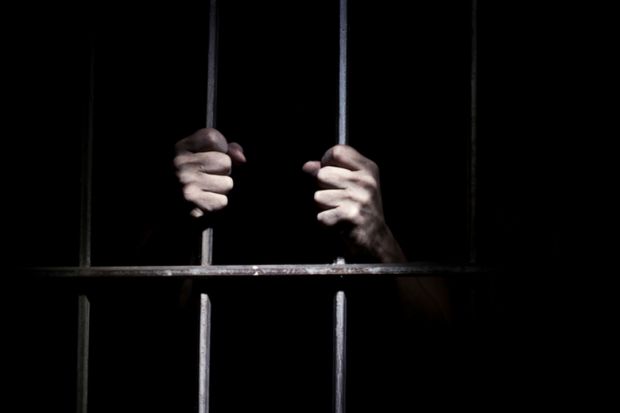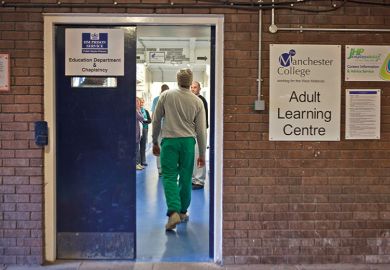Readers of Paul Basken’s recent feature in Times Higher Education on prisoner education in the US could be forgiven for assuming that foolish restrictions on inmates’ access to college-level courses is a uniquely American phenomenon.
As the article sets out, the positive effect that reading and education has on prisoners has been well established by scholarly research and by prison initiatives themselves. That has not stopped New Jersey from recently adding more titles to its list of books off limits to inmates. Nor has it prevented the Police Service of Northern Ireland and the governor of HMP Maghaberry from banning certain books requested by prisoners seeking to further their education.
Previously, Northern Irish prisons banned only images of paramilitary items, symbols or members; any book cover showing these, for instance, was removed. But in the past 18 months, a ban has been introduced on “any item that glorifies or supports terrorism or is of a racist, homophobic, pornographic or violent nature”.
As a result, several academic books have been banned in their entirety, from publishers including Oxford University Press and Manchester University Press. DVDs of documentaries screened by Irish national broadcaster RTÉ have also been confiscated.
My research shows that politically motivated prisoners are willing to acquire skills in prison that will help them to make a positive impact on society after they are released. During Northern Ireland’s Troubles, for instance, several republican and loyalist prisoners finished Open University degrees. Some of them, such as Lawrence McKeown and Anthony McIntyre, even defended PhDs at Queen’s University Belfast. This experience helped them to become initiators of conflict transformation, such as by supporting the peace process or rethinking the armed struggle of the Provisional IRA.
My work also shows that a prerequisite for such developments is a liberal prison regime that facilitates prisoners’ interest in education. That certainly entails permitting unhindered access to books and other study material.
While some of the initially prohibited books have since been allowed into Northern Irish prisons, inmates still face obstacles in studying for the Open University degrees. The republican prisoner Brendan McConville launched legal action in early June, for instance, claiming that the prisons service failed to ensure that he could safely use computer facilities to complete his OU degree in criminology and psychology. The Irish News quotes his lawyer saying that he “needs access to online articles in order to obtain the best possible mark”.
Reading and education can foster self-awareness and inspire a deeper interest in history, politics and current affairs. Northern Irish prisoners exposed to it will be encouraged to reconsider their violent pasts critically. By contrast, banning books and hindering those pursuing degrees will further radicalise prisoners. And that could have consequences for everyone in Northern Ireland.
Dieter Reinisch is an adjunct professor in international relations at Webster University and a lecturer in history at the University of Vienna. From October, he will be a Junior Core Fellow at the Institute for Advanced Study at the Central European University.
Register to continue
Why register?
- Registration is free and only takes a moment
- Once registered, you can read 3 articles a month
- Sign up for our newsletter
Subscribe
Or subscribe for unlimited access to:
- Unlimited access to news, views, insights & reviews
- Digital editions
- Digital access to THE’s university and college rankings analysis
Already registered or a current subscriber?










